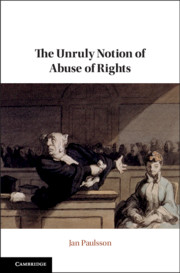This article assesses recent claims that international courts and tribunals can enhance their legitimacy through public reason. Section one argues that international legal scholars attribute a wide range of meanings to public reason, and goes on to provide clarification of how this range of conceptions, or ideas and ideals, referred to as public reason fits into the dominant and broadly Rawlsian tradition. Section two analyses properties and features of international courts that make public reason normatively relevant. Section three then sketches an ideal of public reason for ICs that suggests guidelines and principles to limit the discretion of judges when reasoning about morally and politically contentious issues. This ideal is designed to address a particular legitimacy concern raised against many new international courts, namely, that they engage in judicial activism, passing judgments on contentious moral and political issues without being sufficiently authorized and accountable. This ideal does not encourage the judges to engage in more judicial review, rather it seeks to restrict the judges' reasoning and judicial discretion when engaging in review and judicial development of the law. The final section compares and contrasts the proposed account of public reason to other adjudicative ideals, both from the general adjudicative accounts of Ronald Dworkin and Cass Sunstein, as well as the more ambitious and cosmopolitan accounts of public reason for ICs offered by the legal scholars Kumm, Sadurski, and Petersmann.


